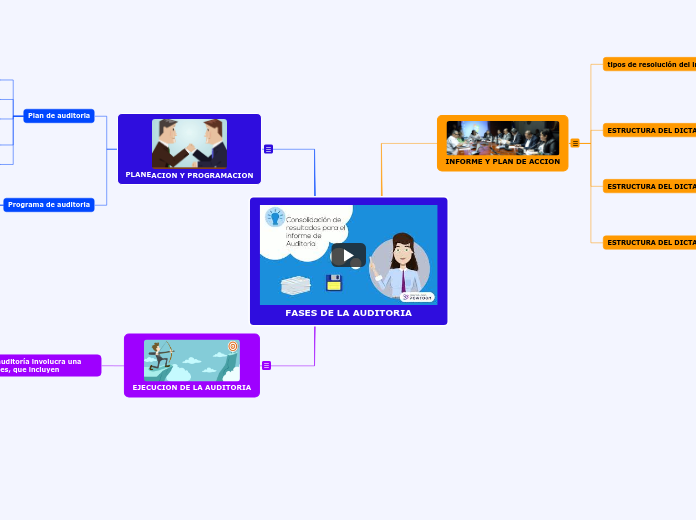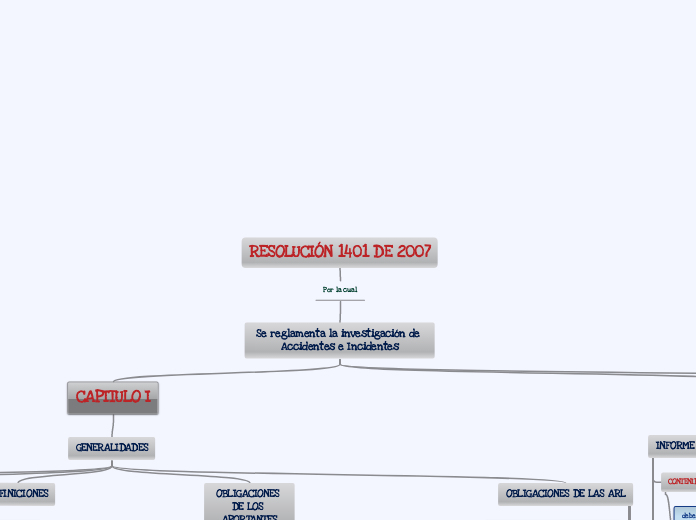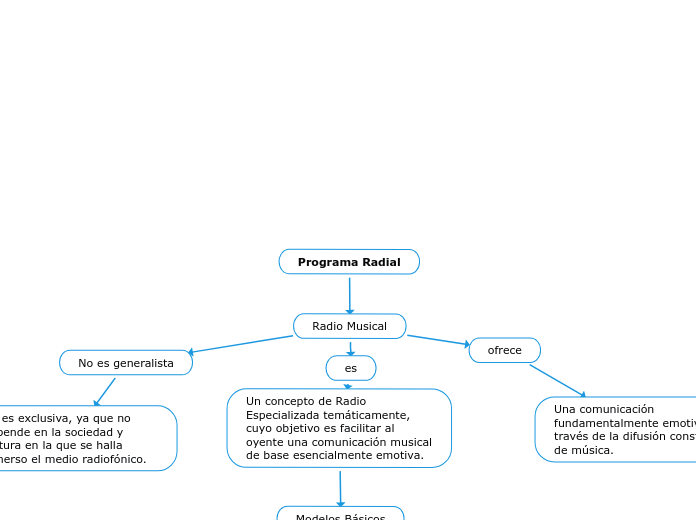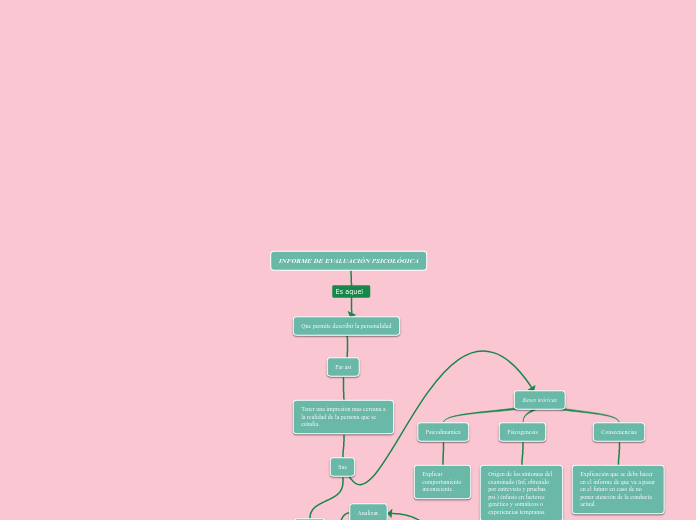FASES DE LA AUDITORIA
In linguistics, syntax is the set of rules, principles, and processes that govern the structure of sentences in a given language, usually including word order.
EJECUCION DE LA AUDITORIA
Ejecución de la Auditoría
El objetivo de esta etapa es obtener y analizar toda la información del proceso que se audita, con la finalidad de obtener evidencia suficiente, competente y relevante, es decir, contar con todos los elementos que le aseguren al auditor el establecimiento de conclusiones fundadas en el informe acerca de las situaciones analizadas en terreno, que entre otras incluyan: el nivel efectivo de exposición al riesgo; las causas que lo originan; los efectos o impactos que se podrían ocasionar al materializarse un riesgo y, en base a estos análisis, generar y fundamentar las recomendaciones que debería acoger la Administración.
A compound sentence is a sentence that has at least two independent clauses joined by a comma, semicolon or conjunction. An independent clause is a clause that has a subject and verb and forms a complete thought.
La ejecución de una auditoría involucra una variedad de actividades, que incluyen
When independent clauses are joined with coordinators (also called coordinating conjunctions), commas and semicolons, they do more than just join the clauses. They add meaning and flow to your writing.
consultar con clientes y otros miembros del equipo
redactar conclusiones y recomendaciones provisionales
documentar observaciones y asuntos
revisar y analizar evidencia
ejecutar procedimientos
realizar evaluaciones de riesgo
PLANEACION Y PROGRAMACION
Planeación y programación
En esta fase se establecen las relaciones entre auditores y la entidad, es el conocimiento global de la empresa por parte del auditor en donde se determina el alcance y objetivos. Se hace un bosquejo de la situación de la entidad, acerca de su organización, sistema contable, controles internos, estrategias, metodologías y demás elementos que le permitan al auditor elaborar el programa de auditoria que se llevará a efecto.
A complex sentence is a sentence that contains an independent clause and one or more dependent clauses.
An independent clause can stand alone as a sentence, but a dependent clause even though it has a subject and a verb cannot stand alone.
Programa de auditoria
The subject clause is a dependent clause that acts as a subject.
Las fechas de cuando se realizarán las auditorias
Tipo de auditoria que se realizará: interna o externa
La Frecuencia: cada cuanto tiempo se realizarán las auditorias
Plan de auditoria
The object clause is a phrase on which a verb performs an action. It falls at the end of a sentence, and is governed by a verb or a preposition.
quiénes serán los auditores
duración de la auditoria: hora de comienzo y hora de finalización
procesos a examinar
alcance de la auditoria
qué se va a auditar
INFORME Y PLAN DE ACCION
Informe y Plan de Acción
Es el resultado de la información, estudios, investigación y análisis efectuados por los auditores durante la realización de una auditoría, que de forma normalizada expresa por escrito su opinión sobre el área o actividad auditada en relación con los objetivos fijados, señalan las debilidades de control interno, si las ha habido, y formula recomendaciones pertinentes para eliminar las causas de tales deficiencias y establecer las medidas correctoras adecuadas.
ESTRUCTURA DEL DICTAMEN TERCERA PARTE
The predicative is defined as an adjective or noun forming or contained in the predicate.
Its main trait is that it serves to express a property that is assigned to a 'subject'.
For e.g.: The dog is old.
LA FIRMA
LA FECHA
ESTRUCTURA DEL DICTAMEN SEGUNDA PARTE
Traditional grammar defines the object in a sentence as the entity that is acted upon by the subject.
PÁRRAFO DE LA OPINIÓN
PÁRRAFO EXPLICATIVO
The indirect object identifies the person/thing for whom/which the action of the verb is performed.
The indirect object is usually a person or a thing.
PÁRRAFO INTRODUCTORIO
The direct object is the receiver of the action mentioned in the sentence.
ESTRUCTURA DEL DICTAMEN PRIMERA PARTE
The predicate of a sentence is the part that modifies the subject in some way. Because the subject is the person, place, or thing that a sentence is about, the predicate must contain a verb explaining what the subject does and can also include a modifier.
DESTINATARIO
TITULO
tipos de resolución del informe de auditoría
The subject of a sentence is the person, place, thing, or idea that is doing or being something. You can find the subject of a sentence if you can find the verb.
Ask the question, 'Who or what 'verbs' or 'verbed'?' and the answer to that question is the subject.
Abstención u opinión denegada
Opinión adversa o negativa
Opinión con salvedades
Opinión limpia o sin salvedades









